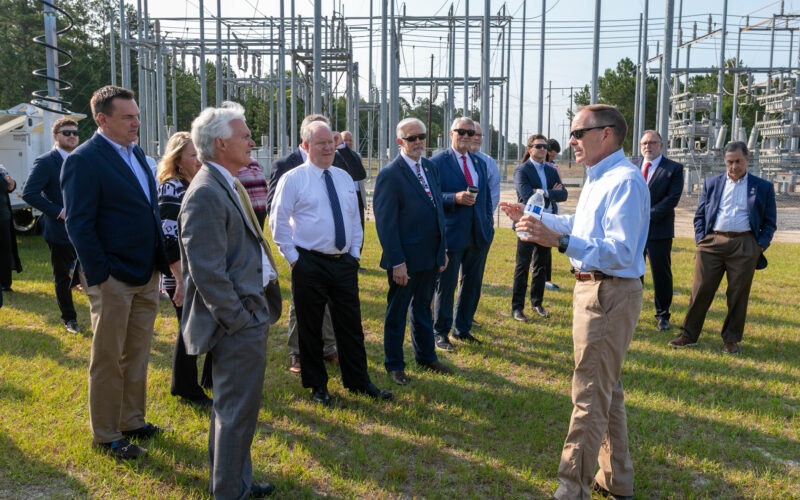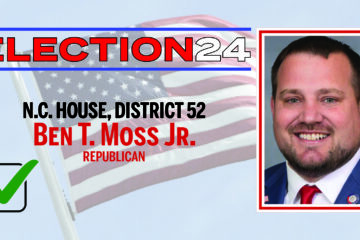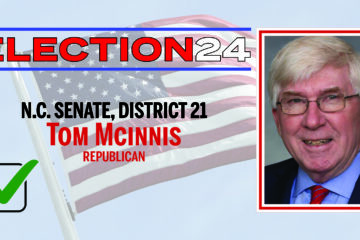PINEHURST — Members of the House Committee on Energy and Commerce came to Moore County for a Congressional field hearing about securing the nation’s energy grid on June 16.
The hearing took place at the Pinehurst Village Hall just miles from the sites of attacks on two power substations that left more than 45,000 in the dark for nearly five days.
Rep. Richard Hudson, a member of the committee and resident of Southern Pines, called the field hearing essential and the start of a conversation.
“This is a day we’ve been looking forward to for a long time. Testimony we hear today will set up a national discussion on grid vulnerability,” Hudson said in his opening statement.
The attacks, and subsequent shooting at another substation in neighboring Randolph County, created more urgency at both a state and federal level. A combined $75,000 reward for information has gone unanswered, and no arrests in the Moore County attack have been made.
A day earlier, the North Carolina General Assembly gave final approval of a bill increasing penalties for crimes relating to “injuring an energy facility,” including electric, gas and telecommunications infrastructure.
That bill, SB 58, creates a new statute making it a Class C felony to knowingly and willfully destroy, injure or otherwise damage an energy facility or attempt to do so. The statute also imposes a $250,000 penalty and increases penalties for trespassing at the facilities.
Gov. Roy Cooper signed the bill into law on June 19.
“We must protect critical infrastructure that keeps electric power and clean water available in our communities, and this bill sends a message to criminals that these irresponsible acts will not be tolerated,” Cooper said in a statement.
South Carolina Rep. Jeff Duncan kicked off the hearing by thanking Hudson for the opportunity to come to the Sandhills to talk about the issue. Nine members of Congress toured both locations of the Dec. 3, 2022, substation attacks prior to the 10 a.m. hearing.
“America’s power grid is the world’s largest and most complex power system,” Duncan said in his opening remarks before recognizing Hudson. “We are taking a close look at these instances to determine if federal laws need to be changed in order to harden the grid, improve situational awareness and enhance grid security.”
Hudson emphasized that he wanted his colleagues to see the level of sophistication of the December 2022 attacks and how it could impact the nation if the type of attacks were replicated.
“Our region suffered millions of dollars in damage just weeks before Christmas,” Hudson said. “In response, our community stepped up. It’s inspiring to see how everyone stepped up in a time of need.”
Hudson said he would continue to push the FBI to investigate and said he shared in the frustration that the perpetrators have not been arrested.
He added that the committee members present need to know “not just the numbers and facts but the people and personal experiences from those who suffered from these attacks.”
Mark Aysta, the managing director of enterprise security at Duke Energy, told the committee that once repairs were finished following the attacks, the company spent six months conducting a review of electric assets.
“We are shifting to a tiered approach with a greater focus on potential impacts to customers,” he said. “We’ve identified opportunities to increase security and surveillance, and we’re developing implementation schedules for this work. Investments in resiliency are a critical part of the $75 billion in grid improvements Duke Energy has planned for its electric utilities over the next decade.”
William Ray, the director of N.C. Emergency Management, called for increased federal funding and reforms in federal statutes that would allow broader disaster recovery efforts beyond a focus on natural hazards.
Following the 90-minute hearing in which questions came about lessons learned, how security can be upgraded, and what is being done on the private sector side, Hudson gave a closing statement.
“My constituents cannot afford further energy disruptions that jeopardize their safety. I am introducing the Protecting America’s Distribution Transformer Supply Chain Act in order to ensure our electrical manufacturers can continue to do what they do best without Washington getting in their way,” he said, adding that the U.S. Department of Energy should be focusing on strengthening the supply chain for distribution transformers.
The proposed bill would repeal the U.S. Department of Energy’s authority to propose, finalize, implement, administer or enforce any energy efficiency standard for distribution transformers for the next five years.
“Today’s the beginning of the conversation to help us. Our job is to take this information and figure out what’s next. We have a responsibility to the country to look at this incident and what it tells us about the vulnerabilities of the grid if we don’t do a better job,” Hudson said before the hearing adjourned.




